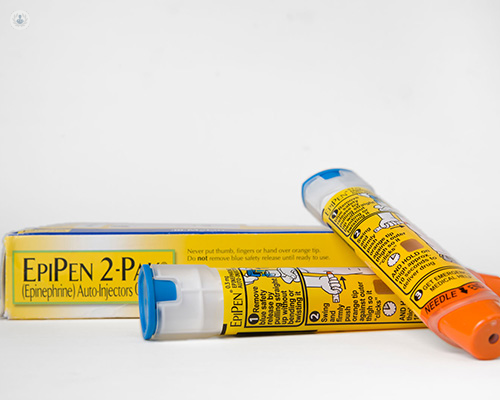Penicillin allergy
Dr Dalbir Sohi - Paediatric allergy & immunology
Created on: 11-13-2012
Updated on: 10-13-2023
Edited by: Conor Dunworth
What is penicillin allergy?
Penicillin allergy occurs when the immune system has an abnormal reaction to the antibiotic drug penicillin, which is usually prescribed for treating various bacterial infections. Other antibiotics that contain chemical properties similar to penicillin can also result in allergic reactions.

What are the symptoms of penicillin allergy?
Within an hour of taking penicillin, the following symptoms may happen:
- Shortness of breath
- Fever
- Hives
- Itchy, watery eyes
- Runny nose
- Swelling of the face
- Tightness in the throat
Anaphylaxis is a severe allergic reaction where you may find it is hard to breathe, you pass out, or your throat swells up. This is a medical emergency and you should call an ambulance.
What happens during an allergy test?
Your doctor will examine you and discuss the symptoms that you have been experiencing. You may have a skin test, where the doctor will prick your forearm using a tiny needle and give you a weak dose of penicillin. The doctor will check to see if there is an allergic reaction.
If you do not have a skin test you may have the challenge test, especially in cases where penicillin is really needed. During the test, the doctor will give you a small dose of penicillin and if there is no reaction after 30 minutes, you will be given a higher dosage. This is repeated until you end up taking a full dose as the doctor watches for any symptoms of penicillin allergy.
How is penicillin allergy treated?
If you have taken the antibiotic without knowing that you have an allergy previously, you must stop taking it. The doctor will prescribe an antihistamine to help ease the symptoms. If there are more serious problems such as swelling, you may be given a corticosteroid.
If you have an anaphylactic episode, you will need to be given epinephrine immediately and to stay in the hospital until your breathing returns to normal.
You should always advise your future doctors that you have an allergy to penicillin and they will be able to prescribe you another type of antibiotic.
